Learning Styles In Physical Education Students Of The Inter-American Open University Of Argentina
Keywords:
learning styles, Honey-Alonso questionnaire, Physical Education, cognitive characteristics of students.Abstract
Determining learning styles has been a permanent pedagogical concern. Knowing how each student studies and learns makes educational efforts efficient. For this, the tools of learning styles have been used and are still widely implemented. Nonetheless, there is growing evidence that judge the theory of learning styles in terms of validity and reliability and raise doubts about its potential to design and implement effective teaching processes. The knowledge of the preferences and aptitudes will be used then, not so much to adapt the methodologies and strategies of intervention on the part of the teachers but, to favor processes of metacognition and self-awareness of the learning in the students. The research work was carried out with students of the Bachelor's degree in Physical Education, of the Faculty of Human Motricity and Sports of the Inter-American Open University of Rosario (UAI), acronym in Spanish. It is a comparative descriptive study, using the survey technique, through the administration of an open questionnaire, applied to a population made up by 100 students from 1st to 4th year of the Physical Education career. The instrument used is the Honey-Alonso Questionnaire for Learning Styles (CHAEA), acronym in Spanish. The results showed that the students of third and fourth year achieve a wide perception and reach to reflect about experiences and act accordingly with them. On the other hand, in the first years the students prefer to get involved completely and without prejudice to the situations that arise.
Author Biography
Daniel Albino Airasca
Doctor en Educación
Universidad Abierta Interamericana
References
Alonso, C. Gallego, D. & Honey, P. (1997). Los Estilos de Aprendizaje: Procedimientos de diagnóstico y mejora. Bilbao: Mensajero.
Blasco, J., Romero, C., Menguali, S., Fernandez-Revelles, A., Delgado, M. &Vega, L. (2015) Estilo de aprendizaje de los estudiantes de magisterio de educación física y de ciencias del deporte de las universidades de Granada y Alicante. Cultura y Educación, 01/2014; 23(3):371-383.
Coffield, F., Moseley, D., Hall, E. & Ecclestone, K. (2004). Learning styles and pedagogy in post-16 learning. A systematic and critical review. London: Learning and skills research
Gil Madrona, P., Contreras Jordán, R. Pastor Vicedo, J., Gómez Barreto, I., González Víllora, S., García López, L., Moya Martínez, M. & López Corredor, A. (2013) Estilos de aprendizaje de los estudiantes de Magisterio. Curriculum y formación del profesorado.Vol.11 n° 2. 1- 19
Gutiérrez, M., Pilsa, C. &Torres, E. (2007) Perfil de la educación física y sus profesores desde el punto de vista de los alumnos. Revista Internacional de Ciencias del Deporte. 8(3), 39-52.
Honey, P. & Mumford, A. (1992) The Manual of Learning Styles. London: Maidenhead
Honey, P. & Mumford, A. (2006). Learning styles questionnaire: 80-item version. London: Maidenhead.
Klein, P. (2003). Rethinking the multiplicity of cognitive sources and curricular representations: alternatives to 'learning styles' and 'multiple intelligences'. Journal of Curriculum Studies. 35 (1): 45–81.
Kolb, D. (1976). The learning style inventory: Technical manual. Boston: McBer y Co.
Kolb, D. (1984). Experiential learning: Experience as the source of learning and development (Vol. 1). Englewood Cliffs, New Jersey: Prentice-Hall.
Lave, J., & Wenger, E. (1990). Situated Learning: Legitimate Periperal Participation. Cambridge, UK: Cambridge University Press.
Manolis, C; Burns, D.; Assudani, R & Chinta, R. (2013). Assessing experiential learning styles: a methodological reconstruction and validation of the Kolb Learning Style Inventory. Learning and Individual Differences. 23: 44–52.
Maureira Cid, F. & Bahamondes, V. (2014) Estilos de aprendizaje de Kolb de estudiantes de educación física de la UMCE y UISEK de Chile. Revista Estilos de Aprendizaje, nº11, Vol 11. 139 -149
Moreno, J. & Cervelló, E. (2003) Pensamiento del alumno hacia la educación física: su relación con la práctica deportiva y el carácter del educador. Enseñanza &Teaching: Revista interuniversitaria de didáctica, Nº21,345-362
Mumford, A. (1997). Putting learning styles to work. Action learning at work. Aldershot, Hampshire, England; Brookfield, Vermont: Gower. pp. 121–135.
Pashler H, McDaniel M, Rohrer D, Bjork R. (2008) Learning Styles: Concepts and evidence. PsycholSciPublicInterest; 9 (3):105-19.
Penger, S, Tekavčič, M & Dimovski, V. (2008). Comparison, validation and implications of learning style theories in higher education in Slovenia: An experiential and theoretical case. International Business & Economics Research Journal–December 2008 Volume 7, Number 12. 25 -44
Pritchard, A. (2014) [2005]. Learningstyles. Ways of learning: learningtheories and learningstyles in theclassroom (3rd ed.). Milton Park, Abingdon, Oxfordshire: Routledge. pp. 46–65.
Reyno Freundt, A., AbarzuaValencia, I, Acevedo Guerra, M, Atienza, M. Perez Nuñez, C. y Ugalde Torres, J. (2013). Características que debe tener un profesor de Educación Física. EFDeportes.com Revista digital. Buenos Aires, Año 18, Nº 183, Agosto de 2013.
Vasquez, K. (2009). Learning styles as self-fulfilling prophecies. In Gurung, Regan A. R.; Prieto, Loreto R. Getting culture: incorporating diversity across the curriculum. Sterling, Virginia: Stylus. Vol. 1, Sec. 5. pp. 53–63
Willingham, D. (2013) Science & Education blog. Learning Styles FAQ. Disponible en http://www.danielwillingham.com/daniel-willingham-science-and-education-blog/archives/05-2013
Willingham, D., Hughes, E. & Dobolyi, D. (2015).The scientific status of learning styles theories. Teaching of Psychology. 42 (3): 266–271.




